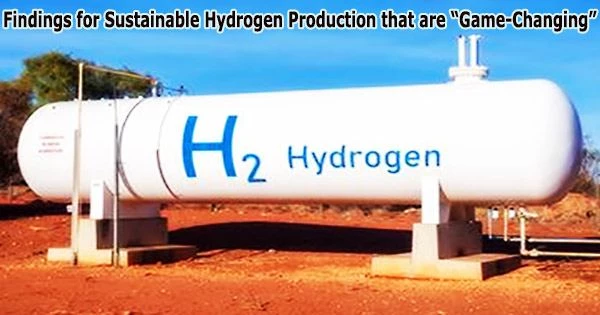According to the University of Surrey researchers, hydrogen fuel may be a more practical substitute for conventional fossil fuels. They discovered that a particular class of metal-free catalysts may aid in the development of affordable and sustainable hydrogen generation systems.
The study has demonstrated promising results for the direct conversion of methane, which is also a potent greenhouse gas, into hydrogen using edge-decorated nano carbons as metal-free catalysts. Nitrogen-doped nanocarbons had the best level of performance for hydrogen production at high temperatures among the nanocarbons that were studied.
Importantly, the team discovered that the phosphorus- and nitrogen-doped nanocarbons had great resistance to carbon poisoning, a problem that frequently affects catalysts in this procedure.
Dr. Neubi Xavier Jr, the Research Fellow who performed the material science simulations, said:
“Our results suggest that using edge-decorated nano carbons as catalysts could be a game-changer for the hydrogen industry, offering a cost-effective and sustainable alternative to traditional metal catalysts. At the same time, this process gets rid of methane, which is a fossil fuel involved in global warming.”
One of the biggest challenges with catalysts for hydrogen production is that they can get poisoned by carbon. But our study found that nitrogen and phosphorus-doped nano carbons are pretty resistant to this problem. This is a huge step forward for sustainable hydrogen production.
Dr. Marco Sacchi
A clean, renewable energy source with the potential to lower carbon emissions and lessen our reliance on fossil fuels is hydrogen fuel. Hydrogen is a fuel that may be used to heat buildings, power cars, and produce electricity.
Hydrogen fuel is an environmentally benign substitute for conventional fossil fuels because the sole byproduct is water vapor.
Nevertheless, the manufacture of hydrogen fuel is currently dependent on fossil fuels, which results in the release of carbon dioxide, and metal catalysts, whose mining and manufacturing require a lot of energy and may have a harmful impact on the environment.
To fully realize the potential of hydrogen fuel as a clean energy source, it is essential to develop sustainable hydrogen production techniques and catalytic materials.
A team led by Dr. Marco Sacchi from the University of Surrey, an expert in the field of sustainable energy and computational chemistry, who combined quantum chemistry, thermodynamics and chemical kinetics to determine the most efficient edge decoration for hydrogen production, conducted the research.
Dr. Sacchi said: “One of the biggest challenges with catalysts for hydrogen production is that they can get poisoned by carbon. But our study found that nitrogen and phosphorus-doped nano carbons are pretty resistant to this problem. This is a huge step forward for sustainable hydrogen production.”





